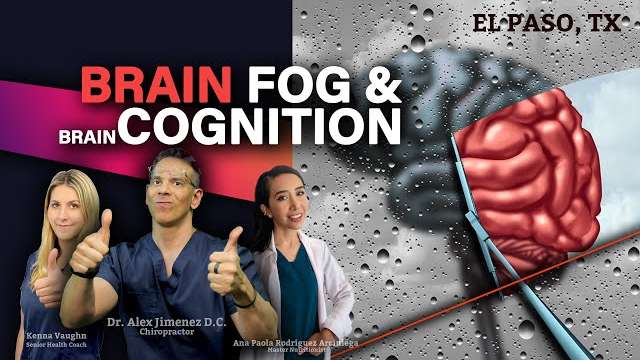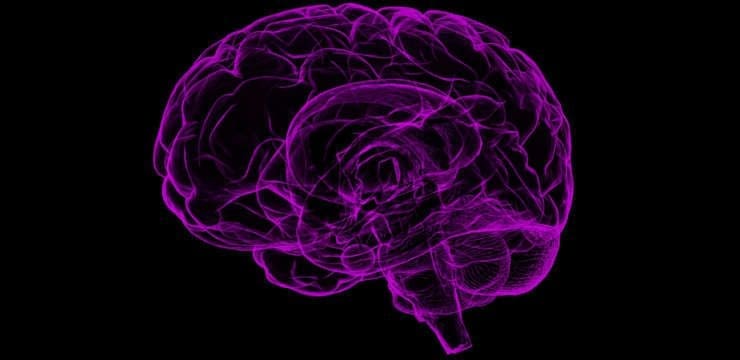Introduction The brain’s main function is to send signals throughout the body in order for it to function properly. These signals are traveling to each…


Introduction The brain’s main function is to send signals throughout the body in order for it to function properly. These signals are traveling to each…

Tremors are extremely rare, but they can result from spinal compression and not necessarily a brain condition like Parkinson’s disease. Tremors are abnormal, involuntary body…

Introduction Every day the body deals in stressful situations constantly. Sometimes stress can be beneficial to the body by giving it a mini boost of…

Introduction The adrenal glands are the most important triangular-shaped organs that are located at the top of the kidneys. These glands secrete out hormones throughout…

Introduction Throughout the entire body system, everything is connected. From the gut to the brain, to the hormones all the way to the immune system,…

Introduction In today’s podcast, Dr. Alex Jimenez DC and Master Nutritionist Ana Paola Rodriguez Arciniega discuss what is brain fog and how does it affect…

Gastrointestinal stress and digestion issues/problems have become a familiar experience for many individuals. Gastrointestinal issues include: Dyspepsia or indigestion Bloating Gas General abdominal pain Irritable…

Individuals involved in slip and fall accidents lead to around 9 million emergency room visits a year. Recovering from a severe injury suffered in a…

Fibromyalgia is a condition that causes pain throughout the whole body. It causes sleep problems, fatigue, and mental/emotional distress. It affects around four million adults…

Chocolate is comfort food. When stressed out, frustrated it makes you feel better, and when things are great, it can make them even better. However,…

The classification criteria for fibromyalgia have changed over time, affecting its definition from a “peripheral pain-defined disease” to a “systemic symptom-based disease.” Indeed, the ACR-2010…

Optimal nervous system health is the key to maximum body function and overall health. Individuals don’t really think about their nervous system until symptoms from…

Getting dizzy can happen, usually after standing up too fast or staring at an optical illusion then looking away. The unsteadiness can be troubling but…

Individuals that experience frequent headaches can have sensitive headache trigger points. Every case is different and requires a thorough examination before a proper and personalized…

Brain fog, memory problems, concentration, and the inability to form clear thoughts is an issue that many will face at some point. The progression of…

Alzheimer’s disease is one that impacts many lives. There are multiple factors that go into the diagnosis of Alzheimer’s, some people’s diet, environment, genetics, head trauma and more. The classic symptoms include loss of memory, memory issues that begin to disrupt everyday life (such as where you keep your coffee mugs), difficulty completing familiar tasks in the workplace or home, confusion with time or place, and trouble understanding images.Â
Normal Aging vs Alzheimer’sÂ
With normal aging, we see brain atrophy, some neurotransmitter loss, and oxidative damage. These changes occur but they do not interfere with daily tasks or quality of life. To determine the difference, we can perform a simple test in the office that consists of a few questions. The score will determine if the aging of the brain is within normal limits.Â
Synapse LossÂ
As mentioned above, head trauma can lead to Alzheimer’s as it increases synapse loss. Things that contribute to head trauma include physical trauma, stroke, hypertension, and diabetes. Additionally, high cholesterol, high homocysteine, low exercise, and specific genes.Â
Genes
Although we are unable to change the genes we were born with, we can alter their expression. There are steps that we can take to alter these genes to express in a positive manner rather than negative. This can help slow down the progression or onset of Alzheimer’s. The genes we specifically look at in reference to Alzheimer’s are those that impact lipid metabolism, inflammation, and are dopaminergic and neurotrophic. These include:
CRP
IL-6Â
TNFAÂ
COMTÂ
BDNFÂ
We have the ability to perform genetic testing through DNA Life to assess your genes and your susceptibility. DNA Mind provides an identification of the level of impact of any genetic variant. It also provides us with a broken down explanation of the genes and their specific impact on the biochemical area and mental health. Additionally, this test not only reports on Alzheimer’s disease but also dementia, cognitive decline, addictive behavior, risk-taking behavior, and mood disorders. A sample report can be seen below:Â
Â
Lifestyle : InBodyÂ
As previously mentioned, we see a direct link between lack of exercise, poor nutrition, and Alzheimer’s disease. We are able to create personalized nutrition plans for your body as well as determine other predisposing factors with the help of the InBody 770 system. This advanced machine provides a great deal of information for us regarding the patient. We track patients Anthropometric measurements in order to determine their lean muscle mass, fat density, visceral fat (fat surrounding the organs- a key indicator of disease risk), water percentage, and height and weight. We measure our patients every 8 weeks and keep a detailed record. These reports are great indicators for health and also assess inflammation and edema. There is more information regarding the InBody below.Â
[embedyt] www.youtube.com/watch?v=N3_BEhgJCGc%5B/embedyt%5D
InBody_E_Book.pdf
GENETIC TESTING IS AVAILABLE NOW AND PROVIDES US WITH MORE INFORMATION THAN EVER BEFORE. WITH THIS INFORMATION AND THIS TECHNOLOGY, WE ARE ABLE TO CREATE PREVENTABLE PLANS GEARED TOWARDS YOU. I HIGHLY RECOMMEND GETTING TO KNOW AND UNDERSTAND YOUR GENES. -KENNA VAUGHN, SENIOR HEALTH COACHÂ

As we know, some individuals have a harder time regulating their mood and emotions than others do. This is highly connected to their genetic predisposition. Mental health falls under the neuropsychiatric disorder umbrella and accounts for up to 25% of all disability-adjusted life years. The genetic predisposition an individual has contributes to the risk of developing a mental health disorder. By using genetic testing, we have the ability to see if a patient is at risk for depressive disorder, bipolar disorder, anxiety, and PTSD. We use the DNA Mind test by DNA Life.